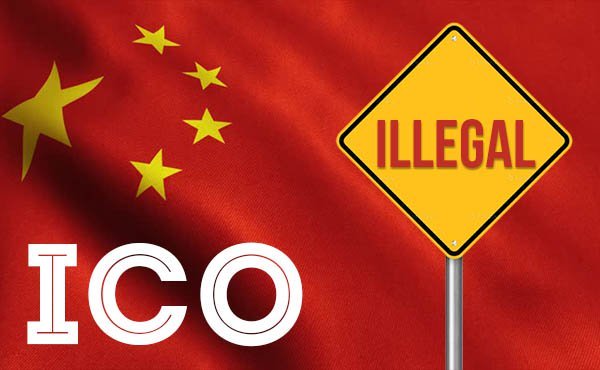 A Peak For the ICO Bubble? China Declares it Illegal
A Peak For the ICO Bubble? China Declares it Illegal
The People’s Bank of China, the central bank of the country, has officially declared initial coin offerings (ICOs) illegal. Upon the completion of its investigation, the institution found that ICOs are in strict violation of China’s existing financial regulations and policies. In the upcoming months, the Chinese government aims to crackdown illegal ICOs and digital token sales.
Jehan Chu, managing partner at Kenetic Capital, told Bloomberg:
“This is somewhat in step with, maybe not to the same extent, what we’re starting to see in other jurisdictions -- the short story is we all know regulations are coming. China, due to its size and as one of the most speculative IPO markets, needed to take a firmer action.”
On a technical level, ICOs are a phenomenal method for startups and projects to raise large capital without the involvement of third party service providers and mediators. But, the market has evolved into a bubble with many fraudulent and non-viable projects raising millions of dollars from non-accredited investors.
Most recently, highly acclaimed celebrity Paris Hilton participated in the launch of LyndianCoin, which was supposedly developed to as an “intelligent A.I. Big Data Marketing Cloud for blockchain.” It is planning a multi-million dollar ICO with Hilton without even a final version of its whitepaper which delves into the blockchain network’s technical specifications. More importantly, it does not have a working prototype and beta-tested software to test against the market.
It is clear as to why government agencies including PBoC and the US Securities Exchange Commission are convinced that the ICO market is in desperate need of regulation. Regardless of the rejection of many experts in regard to the involvement of government agencies in the market, the ICO market is evolving into large-scale bubble which ultimately will affect smart contracts protocols such as Ethereum and Waves negatively.
Many ICOs in the market do have innovative products and unique vision. EOS, Bancor, TenX and Civic are proving to have real-world applications. Consumers utilizing TenX Visa debit cards to spend cryptocurrencies at any credit card-accepting stores and merchants. Xapo and its president Ted Rogers are keen on the applicability of Vinny Lingham’s Civic, which can simplify the verification process for cryptocurrency users.
“This is why Civickey is literally the only ICO I am even slightly interested in - can bring a huge reduction in friction when onboarding,” said Rogers.
Truth is, the vast majority of ICOs in the market have no substance relative to their value and the market is drastically overvalued. Hence, government agencies are attempting to regulate the market with strict policies and regulations. It is still unclear whether such restrictions will work against ICOs as they can simply relocate to regulation-friendly regions like Switzerland to pursue their ICO campaigns.
However, Chu emphasized that China could allow companies to conduct ICOs toward a specific group of investors in the future, depending on the regulations that the central bank is planning on rolling out.
“I think they will allow the sale of tokens in a format which they deem safe and more measured,” added Chu.
Author : Joseph Young
